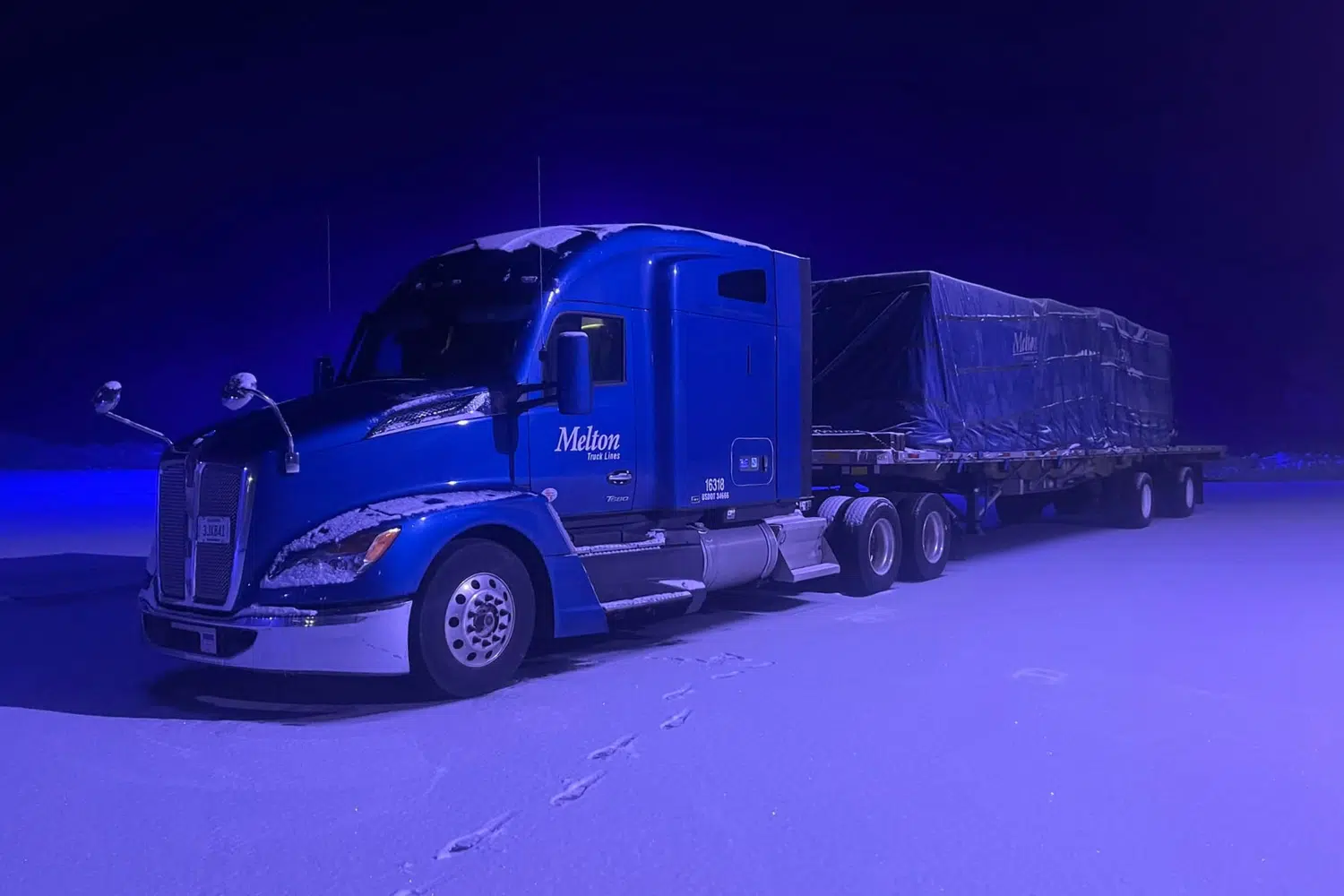
How Does Winter Affect Your Shipments?
Every driver on the road knows that driving in the winter can be challenging and potentially dangerous in the right conditions. For truck drivers (especially those who drive flatbed), the danger of driving in wintry weather is magnified, making it essential for customers to understand the potential impacts on freight delivery and how to prepare.
From here, we’ll take an in-depth look at how winter affects your shipments, and what you can do as a shipper to ensure your freight reaches its destination safely and on time.
Challenges Winter Conditions Pose for Flatbed Shipments
Flatbed shipments are particularly vulnerable to winter weather conditions.
Unlike enclosed trailers, flatbeds are exposed to the elements, increasing the risk of damage from snow, ice, and freezing temperatures. Some specific challenges flatbed drivers might face that could cause delays include:
- Increased Risk of Cargo Damage: Without adequate protection from tarps or heavier cover, cargo is exposed to snow, ice, and road debris, which can compromise its integrity.
- Equipment Challenges: Strapping and securing freight in freezing temperatures can be more time-consuming and physically demanding, potentially causing delays at loading and unloading points.
- Road Closures and Restrictions: Seasonal road closures due to snow can affect transit routes, adding complexity to logistics planning.
Are There Extra Regulations for Flatbed Shipments During Winter?
Winter weather often triggers additional regulatory requirements for flatbed carriers. Some examples are as follows:
- Chain Laws: Many states enforce chain laws during winter, requiring trucks to carry tire chains and use them in icy or snowy conditions.
- Frost Laws and Weight Limits: Certain states can impose reduced weight limits on roads and bridges (Commonly called “Frost Laws”) during winter to prevent additional damage to infrastructure. This practice is prevalent in northern states, and parts of Canada.
- Securement Standards: Regulations require extra vigilance in load securement to prevent freight from shifting due to slippery conditions.
Extra Protection Your Freight Needs During Winter Months
To protect your shipments during winter, additional precautions are necessary:
- Tarping: High-quality, weather-resistant tarps are essential to shield cargo from snow, ice, and moisture. Proper tarping ensures your goods remain secure and intact.
- Regular Inspections: Carriers must frequently check and adjust securement equipment, as straps and chains can loosen or become brittle in freezing weather.
- Thorough Planning and Careful Driving: Route optimization can be a great tool in the trip planning process, but carriers will need to include plans and back up options for conditions and sudden weather changes. Drivers will need to be prepared, not only physically but psychologically as well.
Minimizing Delays and Problems with Winter Freight
Carriers and shippers can work together to ensure smooth operations during winter months. Here are some best practices:
- Plan Ahead: Build extra time into your delivery schedules to account for potential delays due to road closures or weather conditions.
- Work with Experienced Carriers: Partner with companies that have a proven track record of navigating winter conditions effectively.
- Leverage Technology: GPS tracking and route optimization tools help identify safer and faster routes during severe weather.
- Clear Communication: Keeping open lines of communication with your carrier to stay updated on weather forecasts, road conditions, and potential delays.
Winter doesn’t have to derail your shipments. By understanding the challenges, taking extra precautions, and partnering with experienced carriers like Melton Truck Lines, you can ensure your freight is protected and delivered on time.
- Expert Drivers: Melton’s drivers undergo rigorous training, equipping them with the skills to handle icy roads, low visibility, and other winter challenges.
- Top of the line Equipment: Our fleet is maintained to the highest standards, ensuring reliability in all weather conditions.
- Customer-Centric Approach: Melton prioritizes clear communication and proactive problem-solving, keeping you informed throughout the shipping process.
When you trust Melton, you gain peace of mind knowing your cargo is in the hands of experts who prioritize safety and efficiency, no matter the season. Learn more about the services we can offer here.
